Sci-fi short promotes Rosetta comet mission
- Published
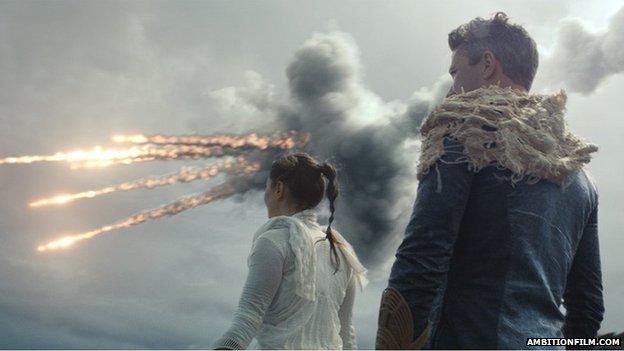
Aidan Gillen and Aisling Franciosi play master and apprentice on an alien world
The European Space Agency has released a short sci-fi movie, external to promote its audacious Rosetta comet mission.
Called, suitably, Ambition, it stars Game of Thrones' Aidan Gillen and actress Aisling Franciosi as master and apprentice on an alien world.
In the seven-minute drama, the pair discuss the presence of water on planets and the origin of life.
These are themes Esa's Rosetta probe hopes to address in its study of Comet 67P/Churyumov-Gerasimenko.
Next month, the spacecraft will drop a small robot on to the surface of the 4km-wide ice body to analyse its chemistry.
Theory holds that comets may have been responsible for delivering water to the planets early in the Solar System's history. They could even have delivered important chemistry that helped to kick-start biology at Earth. The mission intends to test these ideas.
Esa believes the movie-short can take the goals of Rosetta to a wider audience.
"We are trying something supremely ambitious. Rosetta is a first; it's unique," said the agency's chief scientific advisor Prof Mark McCaughrean.
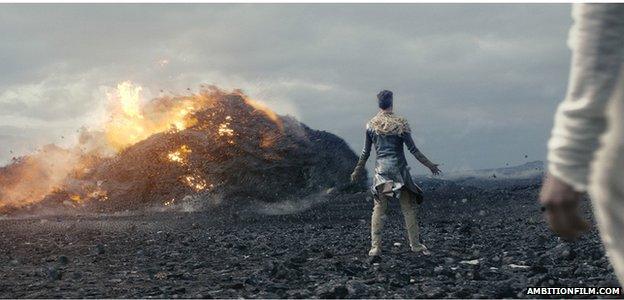
Ambition was shot on location in Iceland, and was directed by Poland's Tomek Bagiński, who received an Oscar nomination in 2003 for his animated short Katedra.
Esa has declined to discuss the cost of the FX-heavy production, and insisted that it was not strictly a commercial venture anyway because of the motivations of all the partners involved in the project.
Aisling Franciosi said she wanted to participate even before she had properly read the script.
"I'm a geek so I was super-excited to be part of the project. And Iceland was what I imagined it would be like working on the Moon, so it was such a great location," she told the Q&A session that followed Ambition's premiere at the British Film Institute in London.
The BFI had actually approached Esa earlier in the year to see if it could contribute something to a sci-fi season.
With the agency wondering at the time how best to promote Rosetta, ideas then quickly gravitated towards the possibility of a sci-fi short that was built around some of the mission's key science questions.
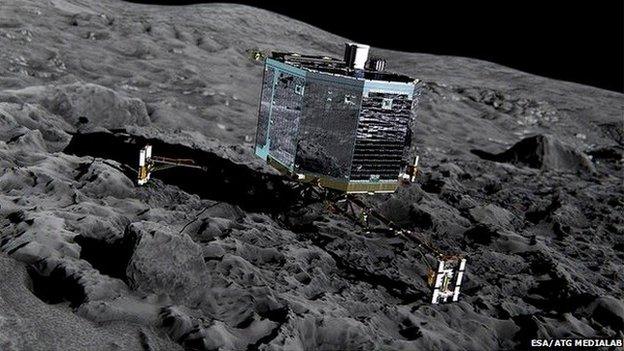
The Rosetta mission aims to put a small robot on the surface of Comet 67P next month
One of the speakers at the premiere was Alastair Reynolds, the renowned sci-fi writer and former Esa employee.
He said Rosetta was ripe for the treatment.
"Our distant descendants may look back to Rosetta with the same sense of admiration that we reserve for, say, Columbus or Magellan," he speculated.
"They will think of this tiny little brave envoy that we sent out on a 10-year voyage to its destination, with enormous risks and perils along the way, but which nonetheless met its objectives.
"And they will see that this was a step in a much longer narrative that will be played out over many centuries. I think we're talking centuries before we get the answers to some of these really deep questions."
Ambition is available to view online, and will be the first thing visitors to the Esa website see over the weekend.
This kind of mission "trailer" is starting to look like an essential part of the outreach activities for the biggest space projects.
Nasa, the American equivalent of Esa, created a buzz ahead of its Mars Curiosity rover landing in 2012 with a short called Seven Minutes of Terror, external. This described the engineering challenges of putting a one-tonne robot on the surface of the Red Planet.
The seven minutes referred to the limited amount of time Curiosity had to slow and stop itself as it hurtled through Mars' atmosphere.
The comet landing will be more like seven hours of terror - or nail-biting, depending on your point of view. The descent of the robot, called Philae, will be much slower, although no less difficult.
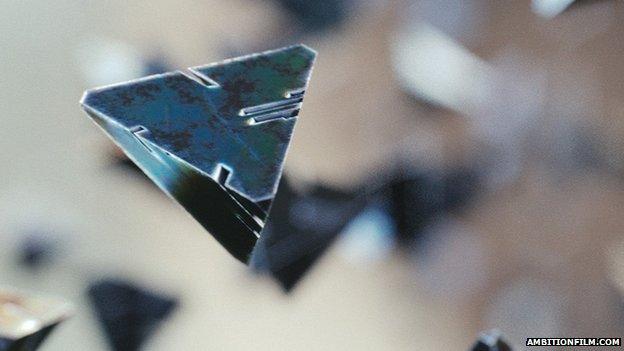
The premiere of Ambition on Friday resolves an internet riddle from recent weeks.
Just a minute of the film was posted back in early October with very little explanation as to what it was all about.
After the "big reveal", Tomek Bagiński was asked if people might feel a bit let down that the teaser did not turn into a proper two-hour film.
"I am prepared that some people will be disappointed that this is not a bigger thing, that it is not a full feature," he told BBC News. "But the key point is this: it is a bigger thing. The bigger thing is Rosetta - a billion-dollar mission. It couldn't be more exciting."
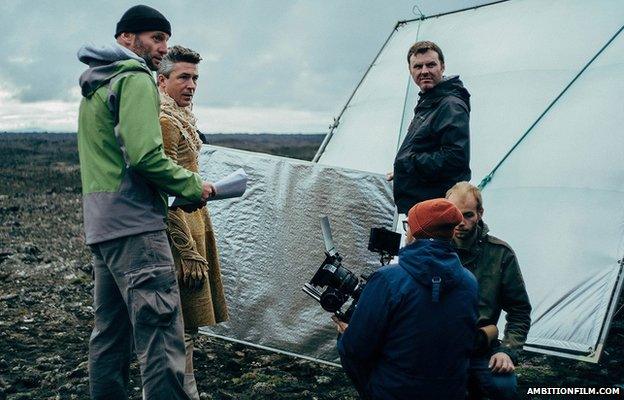
The production was shot in Iceland
Jonathan.Amos-INTERNET@bbc.co.uk and follow me on Twitter: @BBCAmos, external
- Published26 September 2014
- Published15 October 2014
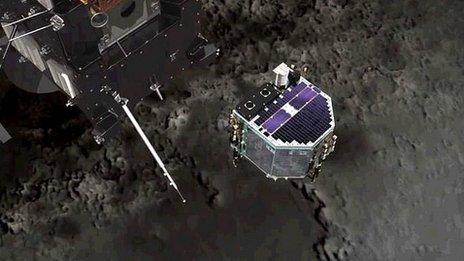
- Published24 October 2014
- Published17 October 2014